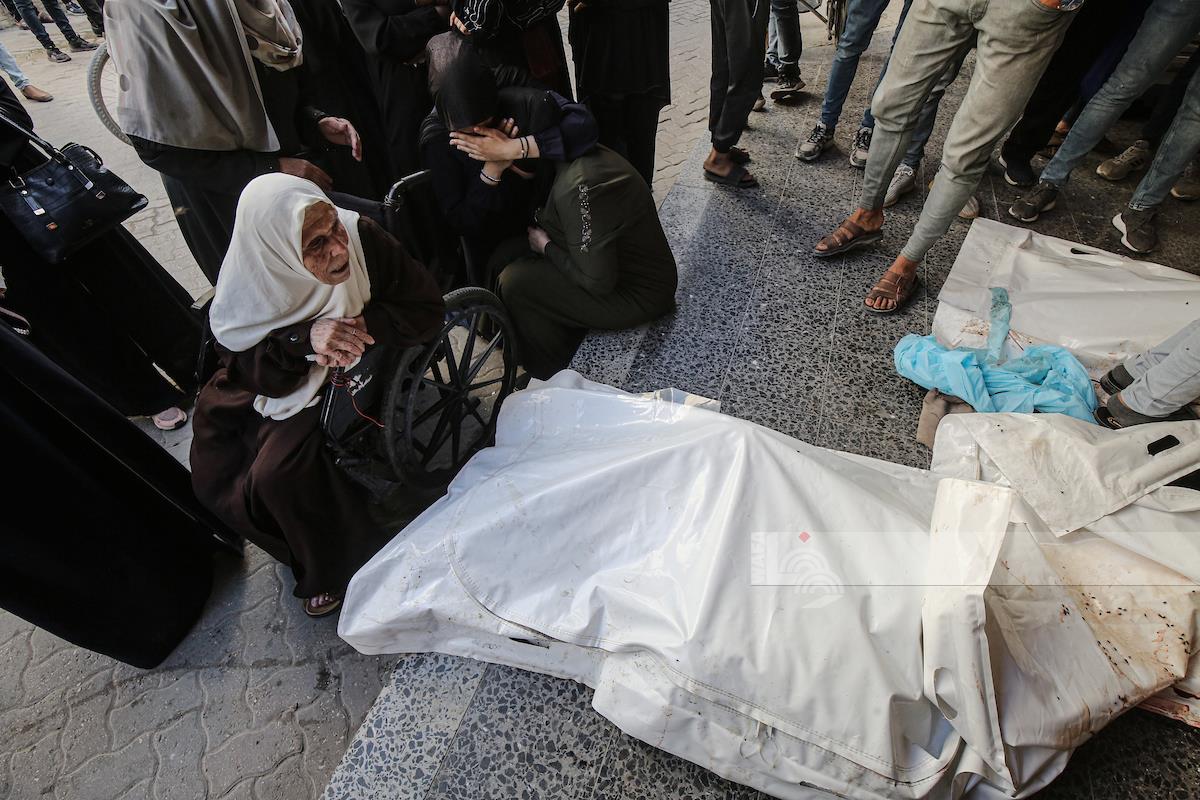RAMALLAH, February 22, 2015 (WAFA) – The detainees and
ex-detainees affairs committee Sunday stated that Palestinian prisoners in Israeli
jails are set to embark on an extended protest against the prison administrations’
arbitrary and repressive measures against them.
The committee in a press statement said that prisoners are
planning to go on a hunger strike to protest their inhumane conditions of
detention; Palestinian prisoners are detained in overcrowded cells that lack
the least acceptable standards of living.
The committee said that prisoners will carry out a hunger
strike on the 10th of March to get the prison administration to
respond to their demands, which revolved around several issues, including
ending solitary confinement and administrative detention without charge or
trial, providing them with the necessary medical treatment, and ending the
policy of collective punishment against them, including the surprise night
raids on their cells.
It added that prisoners gave the prison administration up
until the 10th of March to reconsider their arbitrary measures
against them, stressing that if the former fails to meet their needs they will
further escalate their protest steps, given their unbearable conditions of
detention.
The prisoners appealed to all relevant organizations to
support them in their struggle to gain their basic rights.
Palestinian prisoners are held in overcrowded cells that lack
basic health standards, including the infestation of insects and rats, extreme
cold and lack of heating methods, and wastewater leakage into their cells,
which further aggravates their already poor conditions.
Prisoners are often subjected to physical abuse during their
detention, interrogation and transfer between prisoners, which is prohibited by
international law.
Under international law, it is illegal to transfer prisoners
outside of the occupied territory in which they are detained and it is very
difficult for the families of Palestinian detainees to obtain permits to visit
their detained relatives.
Meanwhile, the Palestinian Prisoner’s Club (PPC) said that
Palestinian prisoners in Etzion prison are suffering from extreme cold as a
result of being denied warm blankets and heating methods.
PPC said that the prison administration provided prisoners
with damp blankets in light of the current snowstorm that affected the region
on Thursday.
It also reported that prisoners were hand and leg tied and
put inside cold barracks, where they were left without food and water for
several hours waiting for their transfer to Ofer military court for their
hearings.
PPC said several cases of physical abuse against prisoners
were reported during the arrest of a number of prisoners, including beating
them up and spraying them with pepper spray.
Meanwhile in Asqalan and Ofer Israeli prisons, prisoners
complained about their deteriorating health conditions as a result of being
denied the needed medical treatment, stating that several cases are in
desperate need of immediate medical treatment.
The detainees and ex-detainees affairs committee reported on
the case of prisoner Ala’ al-Hams; he is a resident of Gaza’s Rafah city who
has been suffering from serious life-threatening diseases since his arrest in
2010.
Al-Hams has been suffering from TB disease (Tuberculosis) and
blood clots in his lungs since his arrest in 2010. The prison administration provided him with
some kind of a treatment that further aggravated his condition and caused him
serious complications, including a tumor in his lymph glands which causes him
to wake up every morning to find blood in his mouth.
The prison administration continues to deny him the treatment
he desperately needs, as he has developed tumors and malicious diseases.
Al-Hams lives in constant daily pain throughout his body,
nausea, loss of weight and a colon infection, in addition to involuntary
urination, and poor vision.
More than 6,500 Palestinian political prisoners are currently
held in Israeli jails, of whom dozens serve multiple life sentences. About
1,500 prisoners are believed to have health problems due to medical negligence.
T.R/M.H










